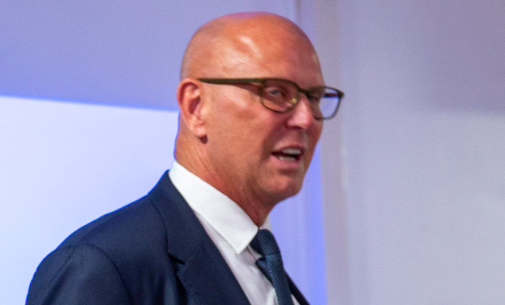Martin Fitchet, CEO of MMV, gives a speech at the UCL plant in Kikuyu.
A batch of life-saving Kenyan-manufactured
antimalarial drugs, sulfadoxine-pyrimethamine plus amodiaquine (SPAQ), is on
its way to protect millions of children in Mali.
Manufactured by Universal Corporation
Limited (UCL), a Kenyan pharmaceutical company based in Kikuyu, the seven
million-dose consignment will be the first-ever Global Fund procurement from an
African manufacturer.
The medicines will be supplied to Mali
through the Seasonal Malaria Chemoprevention (SMC) programme, which provides key
interventions used to protect millions of children under five from malaria each
year during the rainy season.
Malaria, a life-threatening disease spread
to humans by female Anopheles mosquitoes is mostly found in tropical countries.
Despite it being highly preventable and curable, it remains among the leading
killer diseases, especially in sub-Saharan Africa, with children under the age
of five bearing the brunt.
In 2023, According to the World Health
Organization (WHO), 267 million malaria cases and 597,000 deaths were in 2023
in the region.
“The WHO African Region continues to carry
a disproportionately high share of the global malaria burden. In 2023 the
Region was home to about 94 per cent of all malaria cases and 95 per cent of
deaths. Children under five years of age accounted for about 76 per cent of all
malaria deaths in the Region,” WHO said in a statement on December 11, 2024.
Historically, malaria medicines used in
different programs across the continent are sourced mostly from European or
Asian manufacturers.
However despite playing a key role in
reducing the severity of the disease over the years, this strategy left the
region vulnerable to some external shocks and supply delays.
With technical support from Medicines for
Malaria Venture (MMV), and an
Indian-based company, Rena, UCL obtained WHO prequalification of, SPAQ in 2023,
becoming the first manufacturer to do so, and earlier this year in May, the
factory penned history after receiving a major procurement order from the
Global Fund.
The Global Fund, which is formally known as
The Global Fund to Fight AIDS, Tuberculosis, and Malaria, is a partnership that
mobilises resources, from donors and other partners to combat these three
diseases, especially in counties that have been most affected.
With the UCL-produced drugs, each of Mali’s
1.8 million children will receive four preventive doses, significantly reducing
their risk of falling ill or dying from malaria, throughout the rainy season.
According to Perviz Nadhani, UCL’s managing
director, in a briefing this month, there is an urgent need for collective
effort between the government and the private sector to elevate regional drug
manufacturing.
Nadhani affirmed that the move will be pivotal
in cushioning the continent against other emerging pressures such as new
diseases, strained global funding, extreme weather events, biological threats
including insecticide and drug resistance, and inequalities in access to
care.
“This is a win for the continent, not just
Kenya or Mali. We are proud to show that African manufacturers can meet global
standards and deliver for African communities,” said Dhanani.
He spoke on Friday during a high-level
visit convened by UCL, and Medicines for Malaria Venture (MMV), at the
Kikuyu-based plant.
Representatives from the Africa Centres for
Disease Control and Prevention (Africa CDC), the WHO, the African Leaders
Malaria Alliance (ALMA) and leading research and policy institutions also
joined the visit.
Martin Fitchet, CEO of MMV, asserted that
the prequalification and procurement of the drugs will be key to setting the
pace for other African manufacturers to meet global standards and reinforce the
continent’s pharmaceutical capacity.
“Africa bears the heaviest burden of
malaria, and it must have the capacity to supply its life-saving solutions. Our
collaboration with UCL is part of a broader effort gathering momentum, to
localize production and unlock regional manufacturing ecosystems,” Fitchet
said.
